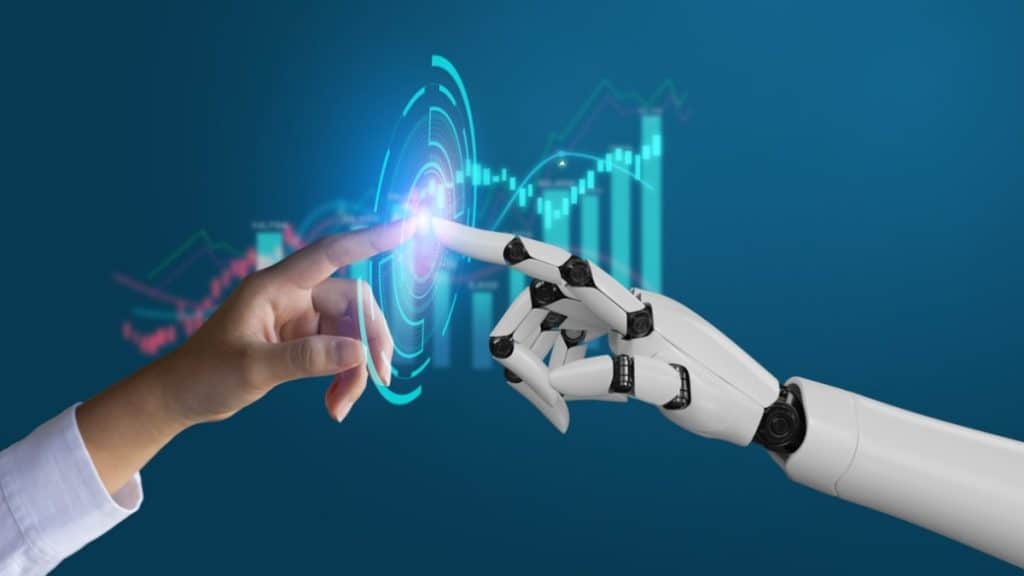Since the beginning of time, humans have developed and deployed tools to make their lives easier. From the invention of the wheel to the creation of the internet, each new tool has represented a leap forward in our ability to solve problems and improve our daily lives.
Artificial Intelligence (AI) is the latest step in this long tradition of innovation. Just as past inventions transformed the way we live and work, AI is now reshaping our world, offering unprecedented capabilities to handle complex tasks and streamline processes.
As AI continues to advance, its integration into IT support is setting new standards for IT service delivery. Rather than replacing IT support jobs, AI acts as a productivity-boosting assistant, making work easier and more efficient for human agents.
This article will explore how AI technologies are bringing more value to IT support teams by offering seamless, secure and highly personalised customer support.
What is AI?
AI, or Artificial Intelligence, is technology that enables machines and computer systems to simulate human cognitive functions, including learning, reasoning and problem-solving. While the specifics vary across different AI techniques, the core principle revolves around data. AI systems learn and improve their performance through exposure to vast amounts of data, identifying patterns and relationships that humans may overlook. Using algorithms and models, AI automates tasks that typically need human input. This allows AI to process information at speeds far beyond human capability, handling complex tasks with a precision and reliability that can surpass human abilities.
How AI is Transforming IT Support
Automation of Routine Tasks
Many organisations struggle to find IT professionals with the skills required for handling complex IT support tasks. This scarcity often leads to overburdened IT teams, where existing staff members have to manage heavier workloads. As a result, routine tasks such as password resets and software updates consume valuable time and resources that could be better utilised elsewhere.
AI helps by streamlining these routine processes through automated workflows that operate without human intervention. For example, AI can handle password resets by following a set procedure and it can manage software updates by automatically deploying them at scheduled times. This not only speeds up response times but also enhances accuracy, reducing the likelihood of errors that can occur with manual handling. By taking over these repetitive tasks, AI allows IT technicians to focus on more complex and high-value activities, ultimately improving service delivery and user satisfaction.
AI-Driven Chatbots and Virtual Assistants
As workplaces increasingly rely on technology, the demands on IT support teams are growing. This places additional strain on limited resources, making it difficult to manage the rising volume of support requests. AI addresses these challenges by efficiently handling a large number of support tickets and offering round-the-clock assistance. Unlike human agents who work set hours, AI-powered chatbots provide instant support at any time of day or night, ensuring customers receive assistance whenever they need it. This significantly enhances customer satisfaction by reducing wait times and extending service availability beyond typical business hours.
Chatbots can resolve many low-level issues on their own, such as troubleshooting connectivity problems or guiding users through setup processes. By taking care of these routine issues, chatbots free up human agents to focus on more complex and challenging support requests, allowing for more efficient and effective use of IT resources.
Natural Language Processing (NLP)
While AI-driven chatbots excel at automating support tasks, NLP takes their capabilities a step further by enabling a deeper understanding of user queries expressed in natural language. Unlike older systems that relied on matching keywords to understand user queries, often causing frustration when queries weren’t phrased exactly right, NLP allows chatbots to understand the context, intent and nuances of what users are asking. This results in a more intuitive and effective support experience for users, ensuring that their needs are addressed promptly and accurately.
Additionally, NLP automates the categorisation of support tickets. It can read and understand the content of a ticket and then direct it to the appropriate support team or technician without needing human intervention. This automation makes the entire support process more efficient, reduces response times and improves overall user satisfaction by delivering faster and more accurate support.
Predictive Maintenance and Proactive Support
Traditionally, IT support teams have operated under a reactive “break-fix” model, addressing issues only after they caused disruptions. AI changes this paradigm by utilising machine learning and advanced diagnostic algorithms to predict and prevent failures before they occur. AI-powered diagnostic tools conduct thorough system health checks, continuously monitoring configurations, error logs and network traffic. By doing so, they can detect anomalies, flag security vulnerabilities and identify potential issues long before they turn into critical problems.
Furthermore, AI can also take proactive measures such as recommending troubleshooting steps or automatically implementing a solution to prevent the issue. This automation significantly reduces the workload on IT support staff, allowing them to focus on strategic initiatives and complex issues rather than routine problem-solving. By transitioning from reactive to proactive strategies, AI empowers IT support teams to deliver more reliable and responsive service.
Final Thoughts
The integration of AI has significantly enhanced IT support by making it faster, more reliable and cost-effective. These technologies enable organisations to elevate service levels and ensure greater user satisfaction. With AI, routine tasks are handled efficiently, potential issues are identified and resolved proactively, and user queries are understood and addressed more accurately.
Partnering with an IT support provider that incorporates AI technologies ensures your business stays ahead in leveraging cutting-edge solutions to streamline operations, enhance security and deliver superior IT services to support your growth and success.
To find the best IT support provider in your area, do some research with a keyword search to get the names of reputable and recommended companies. For example, try ‘IT support Devon’ or ‘Artificial Intelligence IT services Cornwall’ to find a company near you.
Speak to them about your organisation’s IT needs and talk through how they can help you to create a strategy for your business.


